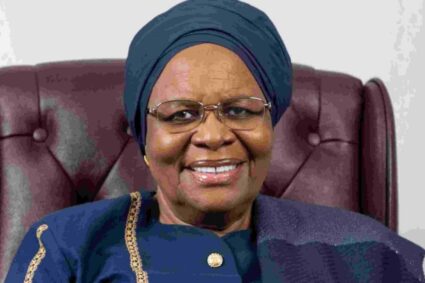
From April 6 to 10, 2025, over 150 teenagers from across the continent gathered at St. Andrew’s School in Turi, Kenya, for the first-ever THABITI African Youth Leaders Summit (AYLS) — a powerful, youth-driven initiative that sought not only to inspire, but to equip the next generation of African changemakers.
Rooted in the Swahili word thabiti, meaning firm or stable, the summit challenged African teens to move beyond waiting for top-down change and instead begin designing and leading solutions themselves. What unfolded over five days was not a conference in the conventional sense, but a deeply transformative leadership experience grounded in identity, purpose, and action.
“Teenagers are adults in waiting. They’re old enough to understand the world, and young enough to be shaped,” said Kendi Mwabila, one of the summit’s core organisers. “They are restless. They are ready. And they know that real change won’t come from the top — it starts with them.”
Participants took part in a series of hands-on workshops led by international youth coaches, mentors, and community leaders. Topics ranged from problem-solving and project management to mindset development and community engagement. But the learning didn’t stop in the classroom. Each delegate left the summit with a mandate: to launch a project within their community addressing a real-world challenge — with six months of post-summit mentorship to support their efforts.
“Enough of just absorbing like a sponge,” Mwabila said during the closing ceremony. “What do you take back to your community to make a difference? We focused on creating a ripple effect.”
That ripple had already begun. By the second day, the tone among participants had shifted. One attendee reflected, “I came here thinking I would be taught solutions. After just one day, I realised I am meant to create them.”
The summit was made possible through the combined efforts of individuals, institutions, and community support. More than 100 participants received full sponsorship, covering transport, accommodation, meals, and summit materials. Behind the scenes, Monika Emad — founder of the Human Unity Gateway (H.U.G.) Foundation — spearheaded the vision with determination, while Ben Wamwea of Coach Ben Africa and his on-the-ground team worked tirelessly to turn the concept into a reality in record time.
The summit’s venue, St. Andrew’s School Turi — a world-renowned institution known for its commitment to holistic education — provided facilities, meals, and accommodation for the five-day event. This generous contribution was instrumental in ensuring the summit’s success.
“Africa is going through birth pains,” Wamwea remarked during his keynote address. “If we don’t guide this generation now, we risk anarchy instead of transformation. But if we do, the potential is limitless. This is not just a feel-good event. This is a movement.”
Looking ahead, the organisers revealed plans to scale the initiative to accommodate up to 900 teenage participants annually, signalling a bold and urgent commitment to shaping the leaders of tomorrow, today.
As the summit drew to a close on April 10, the message was clear: African youth are not passive recipients of inherited problems — they are active architects of future solutions. With the THABITI movement now firmly in motion, the continent’s young leaders are no longer waiting for permission. They are already building the Africa they want to live in.



THABITI (FIRM) LEADERSHIP!
It’s imperative to note that leadership is often described as setting the direction and vision. I believe the THABITI summit was just that. Laying out a strong foundation for our teens who are transitioning to adults in Africa. Leadership emphasizes motivation and inspiration from established leaders who act as our role models to emulate from. Africa we are grappling with numerous challenges and problems and so I believe the THABITI summit was just here to propel us to the next level as the next generation of impacting change in our societies and country at large. For me THABITI is a subtle to have clarity in our visions and try to focus on implementing strategies to achieve those goals. The canopy of leadership encompasses visionary solutions towards the future challenges and strategy formulation to tackle present problems.
Through THABITI I learnt to be a problem solver and to be my own formulator of decisions and creating my own solutions.
Thanks to the team.